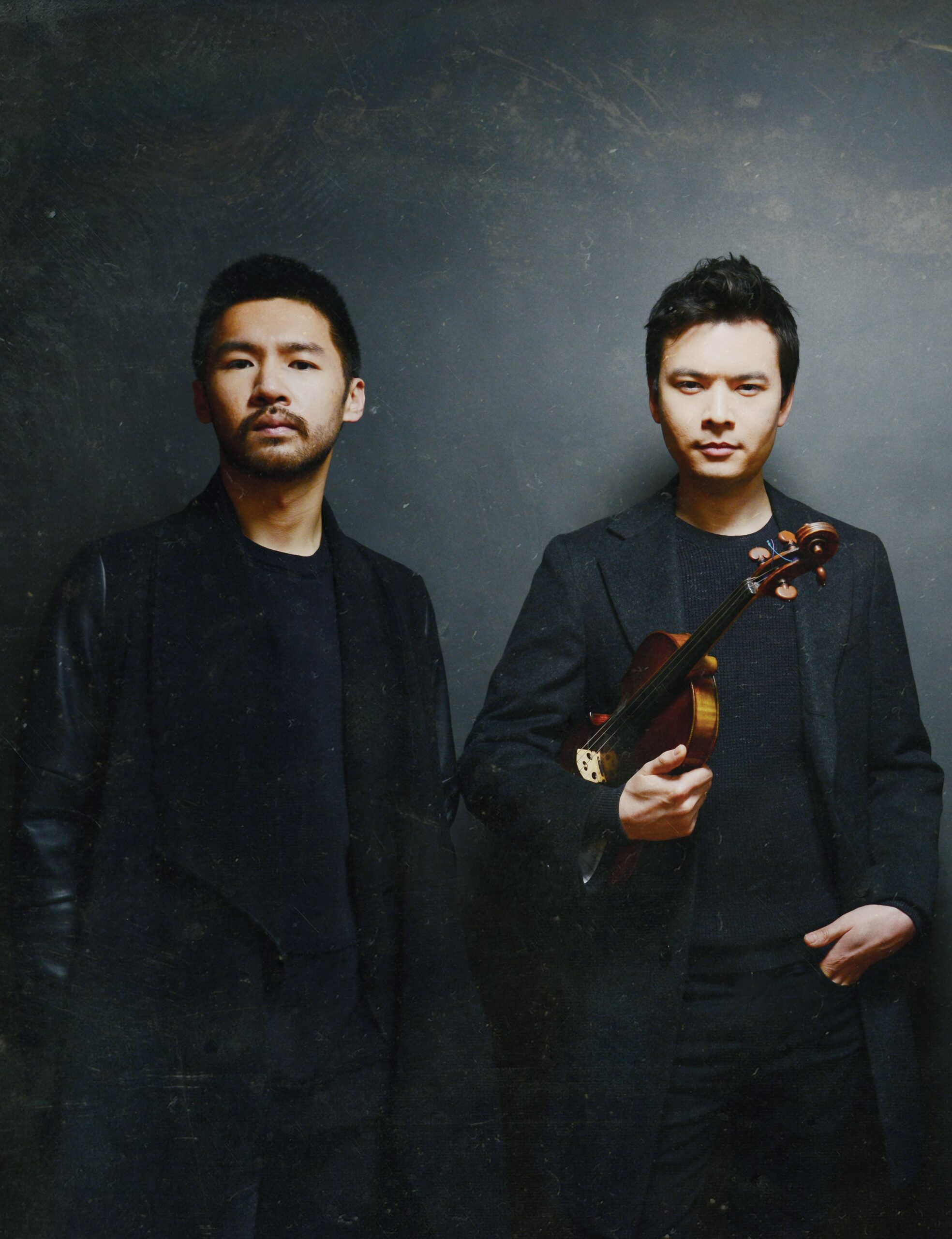Two of today’s foremost contemporary classical musicians take the stage this weekend at Symphony Hall, with the world premiere performance of the new violin concerto composed by Conrad Tao. The Atlanta Symphony Orchestra will perform his composition which he simply calls “Violin Concerto,” with lead violinist Stephan Jackiw under Conductor Robert Spano. Tao and Jackiw joined “City Lights” host Lois Reitzes to talk about the music and their years-long history of enthusiastic collaborations.
Conrad Tao wrote the concerto specifically for Stephan Jackiw, and it’s the third of his compositions to be created with Jackiw in mind. “There are so many things that I love about Stephan’s playing,” said Tao. “This incredible sense of line and phrasing, and this incredible and complex emotionality that I perceive in his tone, a tone that also is quite pure in many ways… opens up all of this richness in the music, and so it is always a pleasure to write for someone like that.”
The admiration seems to flow in both directions, and Jackiw spoke warmly of the music he’ll be performing with his long-time collaborator. “In this violin concerto, I think there’s such a beautiful form to it. The way in which it unfolds is so organic… But it’s also driven by such a powerfully expressive emotional core,” said Jackiw. “I think the slow movement is probably one of the most beautiful things I’ve heard for violin and orchestra. It’s just instantly lovable, without being sentimental at all.”
He added, “When I was talking with our conductor, Robert Spano… one word that he used to describe the final movement, the third movement, which I think is perfect, is ‘whimsy….’ There are some parts that just make me smile in the last movement, because they’re just so playful and kind of cheeky, even.”
Tao describes an almost synesthetic approach to writing for orchestra, referring to many of his musical gestures as “shapes,” “pointillism,” even “a kind of pinball bounce.” The approach, he explained, comes in part from the way he perceives sound outside of the orchestra hall. “When I’m out in everyday reality, and I hear noise on the street, or I just hear sounds in sequence out in the world, a lot of stuff gets perceived as melody, in a way,” said Tao. “So I’m always interested in the boundary between pitched, non-pitched, between tone and noise. All these things are just perpetually interesting to me, and they show up in this work.”






